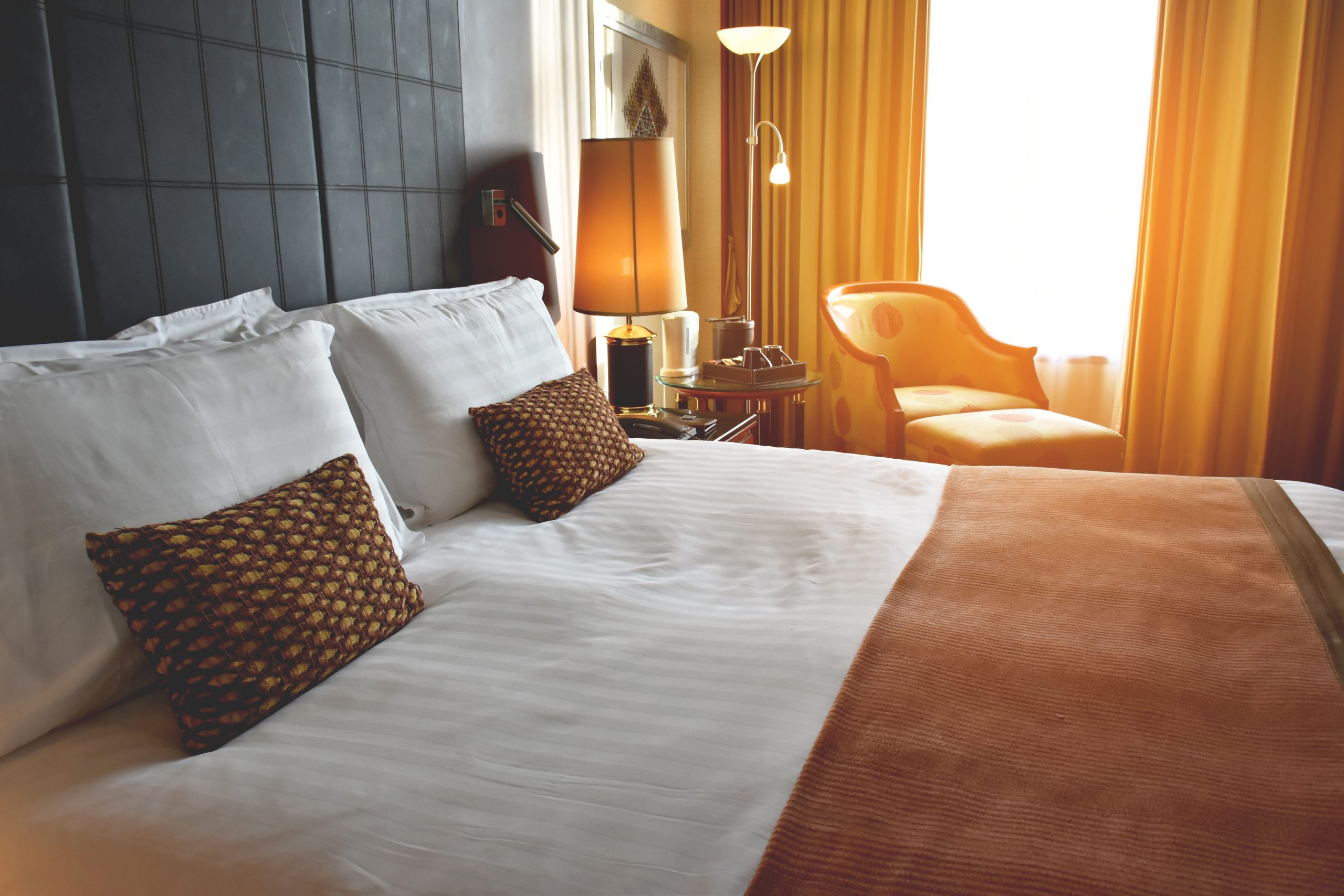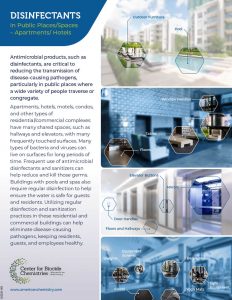Antimicrobial Uses in Apartments and Hotels
Apartments and hotels house many people in close proximity. To reduce the transmission of infectious diseases and create a clean and safe environment for guests and residents, antimicrobials are used to control pathogens in these shared spaces. The specific methods used to apply these products may vary depending on the type of surface and space, but some common approaches include:
-
- Surface application: One of the most common ways to use antimicrobials in apartments and hotels is with disinfectants. This typically involves applying a disinfectant to surfaces such as countertops, floors, and bathrooms to help kill or reduce the growth of microorganisms. Staff may use a range of tools, including cloths, mops, and sprayers, to apply these products effectively.
- Laundry: Antimicrobial products, such as laundry sanitizers, may be used in the laundry process to help kill or reduce the growth of microorganisms on fabrics, such as bedding and towels.
- Air filtration: Some apartments and hotels may also use air filtration systems that incorporate antimicrobial agents to reduce the number of microorganisms in the air.
- Hand sanitizers: Hand sanitizers containing antimicrobials may be provided in common areas such as lobbies and elevators to encourage guests and residents to practice good hand hygiene.
- Water: Swimming pools and spas require frequent disinfection to reduce the growth and spread of waterborne pathogens.

It’s important to note that disinfectants and other antimicrobial products used in apartments and hotels should be used in accordance with product label instructions. Antimicrobials are just one piece of the range of strategies used to reduce the spread of infectious diseases in these public spaces, including promoting hand hygiene, and implementing social distancing measures when appropriate.
Apartments and hotels house many people in close proximity. To reduce the transmission of infectious diseases and create a clean and safe environment for guests and residents, antimicrobials are used to control pathogens in these shared spaces.
Disinfectants in Apartments & Hotels
Antimicrobial products, such as disinfectants, are critical to reducing the transmission of disease-causing pathogens, particularly in public places where a wide variety of people traverse or congregate. Among the numerous unique environments where disinfectants are used in apartment and hotel settings are:
-
- Outdoor Common Areas: Pools and Outdoor Furniture
- Lobby: Windows, Bar, Floors, Tables
- Gym: Gym Equipment, Yoga Mats, Floors, Bars/Handles, Weights, Equipment Screens, Floors
- Elevator Areas: Screens, Mirrors, Elevator Buttons, Floors and Hallways
Disinfectants in Public Places Campaign Infographics
The Disinfectants in Public Places campaign helps raise awareness about disinfectants used in public places. Our Apartments & Hotels infographic highlights some places where disinfectants are used in apartments, hotels, and other types of residential/commercial complexes.



